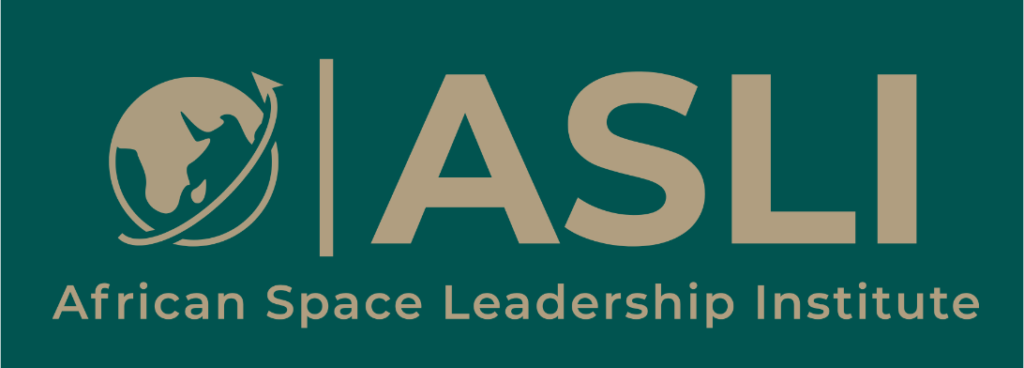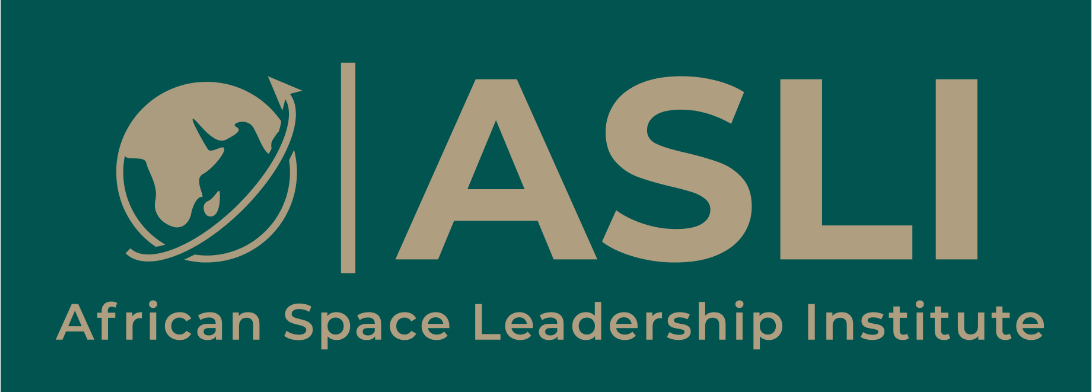About the Course
This course is jointly organised by ASLI and the McGill Institute of Air and Space Law (IASL), McGill University, Canada. It is designed to provide participants with a comprehensive understanding of the legal frameworks and governance structures governing global space activities. Participants will examine the role of international law in the regulation of outer space activities as well as examine the legal principles, policies, and practices that shape the development, regulation, and utilization of space resources and technologies.
During the course, participants will explore aspects of international space law, national space legislation, and regional space law and governance approaches. The course uniquely examines law and governance of space activities through African and global lenses.
Through case studies and practical applications, participants will gain insights into the unique challenges and opportunities faced by African countries in governing and regulating space activities.
Course objectives
Gain a solid foundation in the principles, concepts, and sources of space law, including international treaties, agreements, and customary practices.
Understand the international treaties and agreements relevant to space law.
- Explore the legal aspects surrounding the use of space applications and technology, including satellite communications, remote sensing, and navigation systems.
Examine the legal frameworks and measures to ensure the security and safety of space activities, including space debris mitigation, space situational awareness, and cybersecurity.
Understand the legal and regulatory frameworks governing commercial space activities, including licensing, liability, and intellectual property rights.
Gain insights into the mechanisms for resolving disputes related to space activities, including arbitration, mediation, and the role of international courts.
Understand the legal challenges and opportunities arising from emerging trends in space law, such as activities of NewSpace, space tourism, asteroid mining, and the use of space resources.
.
Expected Learning Outcomes
At the end of the course, participants should be able to:
- Synthesize public international law (including treaties and customary principles) discussed in the classes and identify law applicable to space activities.
- Understand how the legal frameworks, policies, and practices governing space activities are applied.
- Apply acquired knowledge to resolve problems and challenges related to the conduct of space activities.
- Apply acquired knowledge to navigate the complex legal landscape of space law and contribute to the development and implementation of effective space governance.
Who should attend?
- Government officials
- Public servants
- Members of Parliament
- Policy and legal practitioners
- Organisation/Team Leads
- Young professionals
- Students
Benefits of participation
- Gain knowledge in international space law, regulations, governance and norms
- Access course materials and latest documents on space law
- Be thought by leading experts in space law and governance field
- Earn a certificate in Space Law and Governance jointly issued by ASLI and McGill IASL
- Become part of the ASLI and McGill Network
Curriculum
The course consists of 12 modules with 2 live lectures per week.
- General principles of international law: Participants will be introduced to basic concepts of international law as well as the history surrounding space activities, fundamental concepts applicable to outer space. political economy of space activities and current developments in the space field. The session will also cover the importance of space law in regulating activities in outer space, such as satellite launches, space exploration, and commercial space activities.
- Introduction to International space law: This module introduces participants to the overall framework of international law that governs outer space activities, and the fundamental legal and general principles applied in space activities. Participants will examine the space law making process, the space law treaties, declarations, and customary international law (‘soft law’) as a source of space law plus the relationship between global (space) policies and space law.
- Responsibility and Liability for outer space activities: This module provides participants with an in-depth examination governance mechanisms and structures regulating and facilitation commercial use of space. Participants will study the legal and regulatory frameworks relating to licensing, liability, and intellectual property rights.
- Accessing and using outer space: This module provides course participants with an in-depth examination of the space treaties & principles applied in controlling access and use of outer space as well as the legal status of outer space and celestial bodies. The course will provide participants with an overview of international, intergovernmental organizations (IGOs) and non-governmental organizations (NGOs) involved in the development, implementation and monitoring access and use of outer space.
- Safety and Security in outer space: This module examines measures and controls in accessing and using outer space and celestial bodies. The module provides participants with an overview of legal frameworks and structures relied on to ensure the security and safety of space activities, including space debris mitigation, space situational awareness, and cybersecurity as well as military uses of outer space. Participants will explore the law and principles for preserving integrity of outer space and the safety of earth including control over activities harmful to the environment, use of nuclear power sources and radiation as well as prevention cosmic hazards through planetary defence.
- Earth observation and remote sensing: This module covers the law relating to earth observation, remote sensing, geographic information systems, satellite meteorology and global climate activities in outer space. Participants will explore the global, regional, multilateral and bilateral agreements which specifically address earth observation and remote sensing, including sources of data, conditions and prerequisites for access to data as well as use of data derived from those activities.
- Law and Regulation of Astronomy: This module examines the intersection of astronomy and space law. The course explores the legal frameworks that govern the conduct of astronomy including the roles, rights and responsibilities of states, international organizations, and private entities engaged in astronomical activities as well as international organisations like International Astronomical Union (IAU). Participants will examine how international and domestic space law and international systems guide conduct of astronomy and the implications of technological advances to the future of astronomy.
- Satellite communications and connectivity: This module zooms in on satellite communications and the legal framework that governs satellite related activities. Participants will explore the structure and functions of the International Telecommunication Union (ITU) in performing the role of coordinating radio frequencies, geo-orbital slots and other orbits used for non-telecommunication activities. In addition to the ITU, participants shall examine the role and functions of other international satellite organisations.
- Africa and Outer Space: This module provides course participants with an in-depth examination of the space activities and programmes conducted nations and entities in Africa. The course will engage participants through case studies and experiences in conducting and regulating space projects and initiatives on the continent. Participants will also examine approaches and perspectives in national space laws and policies by African countries.
- Emerging Issues in Outer Space: This module examines legal, ethical, and policy considerations shaping the future of outer space activities. The module examines how space law is relevant to resolving challenges and harnessing opportunities in the emerging issues in the space sector. Participants will explore the emerging legal issues in outer space activities such as commercial space activities, space debris management, space resource utilisation and the regulation of private space exploration, and examine how treaties and other relevant laws address the challenges presented.
- Space Asset Financing and insurance: This module provides a comprehensive overview of legal framework governing financing mechanisms for space projects, including public-private partnerships, venture capital funding, and government grants. The module focuses on international law relating to financing of space activities, space assets and space technology. In particular, the provisions of the UNIDROIT Space Protocol regarding registration and securing interests in space objects, will be explored.
- Dispute Resolution for space activities: This module examines the structures and mechanisms for resolving disputes related to space activities. Key topics to be covered include the principles of dispute settlement in international space law, the role of international organisations in dispute resolution, arbitration and mediation processes, and the enforcement of space law agreements. Participants will examine case studies of past disputes in outer space activities and analyse the legal implications and outcomes. Through a class exercise, participants will develop practical considerations to note in resolving disputes relating to outer space activities.
Facilitators
- Prof. Andrea Harrington (Co-Director, McGill Institute for Air and Space Law)
- Dr. Tare Brisibe (SES Satellites)
- Mr. Gilles Doucet (Spectrum Space Security Inc.)
- Ms. Julia Selman Ayetey (Dean, Faculty of Law, University of Cape Coast, Ghana)
- Dr. Adrian Tiplady (Deputy Managing Director, South African Radio Astronomical Observatory)
- Prof. Peter Nesgos (Consulting Partner, Milbank LLP)
- Dr. Upasana Dasgupta (McGill Institute of Air and Space Law)
- Joan Chesoni (Director, Kenya Space Agency Board)
- David Kasibante (East Africa Law Society)
- Dr. Arnold Agaba (McGill Institute of Air and Space Law)
- Etim Offiong (African Space Leadership Institute)
Venue
All course activities (such as live lectures, group discussions and assignments) will be done virtually using the Vigilearn Learning Management System (LMS). This will be augmented with open social platforms.
Time of live lectures
12h00 GMT on Thursday and Friday, each week
Registration
ZAR 6,650

